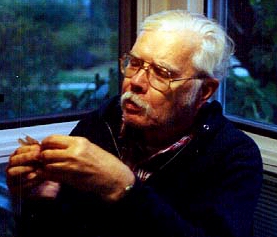Little boy, how old are you? Hold up your fingers, one, two, three, and then one more. What is your name? The nice lady bends over you. Her graying hair, bright eyes, delicate fingers. Jelly. That is your name.
Jelly? That cannot be a real name. Children today, they have such odd names, they cannot even pronounce them. Where is your mother?
You are a lost boy. This morning your mother no longer wants you. Wait here,by the park bench, do not move till I come back.
And the city so huge. Concrete as high as the sky. Cars, buses, trolleys. People, young, old, men, women, children like yourself. You watch, you wait and you wait. Then you get up and walk and walk and now you could never walk back to where you were.
The street is filling with people, more people, people holding signs, people banging pots and pans, people blowing horns and whistles. A man is shouting into something that looks like a horn, his voice comes out huge and terrible, he says a bad word, many bad words. You hear something buzzing above, you look up, it is a helicopter, you know a helicopter from the television. You and your mother sit and watch television together. No more, she no longer wants you, but she taught you this. Helicopter.
Police cars circle. The man with the horn curses the police. You know curses. Your mother and your father use curses just as they use blows, as if they could hurt each other with words.
Now a man is standing next to the nice lady. What the fuck is she doing with this kid? The man does not like you, you can easily see that.
He’s lost. Just wandering.
Let someone else find him!
Another man picks up a trash can, hurls it at a police car. It crashes against the hood and bounces away, scattering papers and empty bottles. Fuck the cops! Fuck you right back, a voice answers. You are not allowed to say that word, but your mother no longer wants you, and now you say it. Very quietly. In a whisper. Fuck, fuck, fuck.
He says his name is Jelly.
Who gives a fuck what his name is? We got to get moving!
You hear glass shattering. Another trash basket is hurled through a store window. Fuck the pigs! The crowd surges into the store, drags out a man with white hair, a grandfather, you think, and tears the clothes from his body. They are carrying boxes out of the store, shoes, sweaters, scarves.
Fools, fools, the man who does not like you cries. Leave them have their fun!
He catches the lady by the wrist, you catch her other hand and allow yourself to be dragged along. The crowd grows thicker, your feet skip over the asphalt. Sirens, police cars, fire engines. You smell smoke. You see boys standing atop a bus shelter, so high, if they fall they would hurt. You see a large white truck with a television camera on its roof. A man is taking your picture. Will your mother see it? Will she remember where she left you?
Get rid of that fucking kid, the man cries.
You are crushed in the crowd. The boys atop the bus shelter dance in glee. Someone is on a loudspeaker. What do we want, when do we want it? The nice lady holds you up. This is history, she says. You might as well see it.
The man with the loudspeaker is on the back of a truck covered with flags. Red flags, black flags, flags with stars and stripes. He is small with long wispy hair, but the loudspeaker makes him huge and powerful. Look at the pigs! You look and you see a row of helmeted policeman seated on huge black horses, all lined up across the intersection, You have never seen a real horse before, only pictures on the television and in a storybook. The rider’s helmets cover their faces. They look like robots, mechanical men, creatures in your father’s comic books. Your father is gone. He said bad words, and he hit your mother, and you will never see either of them again. Look at this, the nice lady says, holding you higher, it’s history, and the man who does not like you rips you out of her arms and hands you up to the boys on the bus shelter. Hi, kid, they cry. Don’t fall off, you break neck.
Look out, someone screams. They are charging.
You hear the thunder of steel clad hooves. One of the boys, seeking a better view, slips, and falls. His friend tries to catch him and both are gone. Then it is all horses, bodies, and screams, until at last you stand alone atop the bus shelter, a lost boy who will never see home again.
A policeman rides up, a visored helmet covering his face, a bullet proof vest covering his chest, the reins of the horse held in both hands. My God, she says, and you see that the policeman is really a police woman. She reaches up and you fall into her arms and she holds you as a mother holds her child. What is your name?
And you tell her. Jelly.

